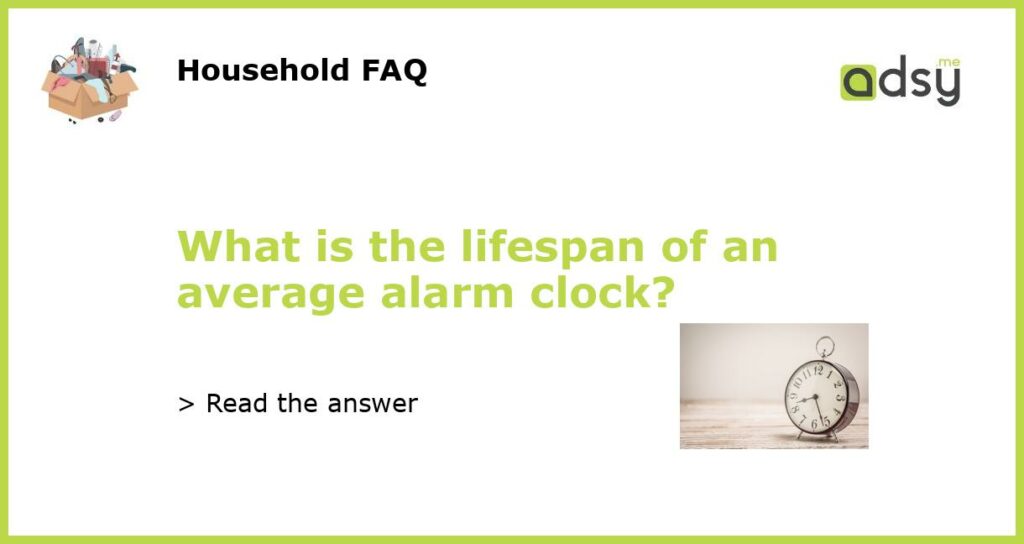The Average Lifespan of an Alarm Clock
Alarm clocks have become an essential device for many people all over the world. They help us to wake up on time for work, school or other important events. However, like many other mechanical and electronic devices, alarm clocks have a certain lifespan.
How Long Do Alarm Clocks Typically Last?
The average lifespan of an alarm clock depends on various factors such as the quality of the device, how frequently it is used, and how well it has been maintained. Generally, the average lifespan of an alarm clock ranges from 3 to 5 years. However, there are cases where alarms have lasted for 10 years, or even longer.
Factors That Affect the Lifespan of Alarm Clocks
There are several factors that can impact the lifespan of alarm clocks. Firstly, the quality of the device is a key determinant. Cheaper, low-quality alarms tend to have a shorter lifespan than high-end models. Secondly, the frequency of use and how it’s handled is also crucial. The more the clock is used, the shorter its lifespan will be. Finally, maintenance is also a crucial factor. Regular cleaning, oiling, and battery replacement will help to extend the life of the device.
How to Prolong the Life of Your Alarm Clock
If you want your alarm clock to last for several years, there are things you can do to help prolong its lifespan. Firstly, store the device in a cool and dry place away from high humidity and direct sunlight. Secondly, clean the clock regularly using a dry cloth to remove dust and debris. Thirdly, avoid slamming the snooze button or hitting the alarm excessively. Finally, replace the batteries regularly and have it serviced by a professional if it starts malfunctioning.
When is it Time to Replace Your Alarm Clock?
Even with proper maintenance, there comes a time when it would be best to replace your alarm clock. Signs that it’s time to buy a new one include difficulty setting the time or alarm, the device not keeping time accurately, or if the alarm no longer sounds. Similarly, if the device already served its useful purpose and stopped working, then it might be time to replace it.






